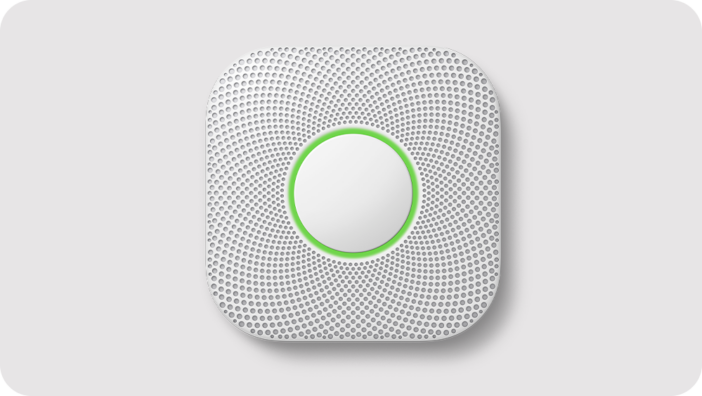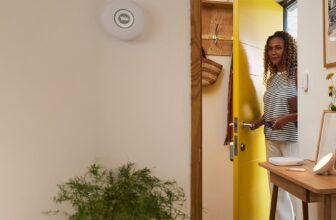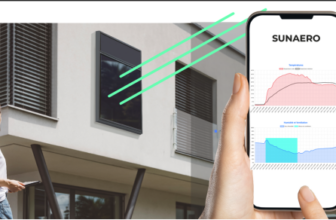Google has just announced the discontinuation of two flagship products from its Nest ecosystem: the Nest Protect smoke detector and the Nest x Yale smart lock. A decision that marks a turning point in the strategy of the Mountain View firm, but which is not necessarily bad news for users. Let's dive into the details of this announcement that shakes up the smart home landscape.
The end of an era for Nest Protect
After more than a decade of loyal service, the Nest Protect smoke and carbon monoxide detector is taking its bow. Launched in 2013, this device completely redefined what one could expect from a simple smoke detector. Gone are the basic alarms that merely screamed at the top of their lungs when a toast was slightly burnt! Nest Protect brought intelligence to a previously rudimentary object.
What made this product so special? Its ability to detect different types of fires (whether slow-burning or fast), its precise voice alerts that indicated exactly where the danger was, and its early warning system “Heads-Up” which alerted you before the situation became critical. Not to mention its “Pathlight” feature that gently illuminated your path at night, or its “Nightly Promise” that reassured you with a glance at the system's status before you went to bed.

I installed several at home a few years ago, and I must admit that the peace of mind they provide is unmatched. Imagine: you are on vacation on the other side of the world and you receive a notification indicating that there is smoke in your kitchen. You can immediately contact a neighbor or the emergency services, potentially even before the fire really starts!
But current owners can rest assured: Google has promised that existing devices will continue to function normally until their expiration date (generally 10 years after their manufacture) and will always receive the necessary security updates. Remaining stock will also be sold off, so if you wanted to complete your installation, there is still time to do so… but don’t wait too long!
The Nest x Yale lock also closes the door
The other casualty of this major spring cleaning is the Nest x Yale smart lock, launched in 2018. This collaboration between Google and lock specialist Yale produced an elegant solution for securing your home. No more keys getting lost or wondering if you remembered to lock the door in the rush to leave for work!
The Nest x Yale allowed users to lock/unlock their door remotely, create temporary access codes for guests or service providers, and integrated perfectly into the Nest ecosystem. Personally, I have always found it fascinating to be able to give temporary access to my home to a neighbor, just for the duration of the vacation, without physically handing them a key!
As with the Nest Protect, already installed locks will continue to function and receive security updates. The last remaining units in stock will remain available for sale until sold out.
A new strategy for Google
So why is Google abandoning these products that seemed so popular? This decision is actually part of a broader evolution of the company's smart home strategy. Rather than manufacturing everything in-house, Google now wants to rely more on a specialized partner ecosystem.
This is quite a radical shift (which echoes the recent discontinuation of the Chromecast), but it makes sense in an increasingly competitive and fragmented market. By focusing on platforms and software rather than hardware, Google can reach more users and let experts in each field do what they do best.
This approach also aligns with the rise of the Matter standard, this “universal language” of connected devices that allows devices from different brands to communicate with each other seamlessly. A boon for consumers who will no longer be trapped in a closed ecosystem!
Successors already on the way
The good news is that Google is not leaving its users in the lurch. To replace the Nest Protect, the company has partnered with First Alert, a recognized leader in the security alarm field.
The new First Alert smart detector will be compatible with the Google Home app and can even communicate with your existing Nest Protects. If your new First Alert detector in the living room detects smoke, it can signal your old Nest Protect in the bedroom, which will alert you in turn. A smooth transition, then!
This new model will retain the key features of the Nest Protect: early alerts, remote notifications, automatic tests, etc. It will be available soon in the United States and Canada at a price of 130 dollars. No information yet on a European release, but let's keep our fingers crossed!
On the lock side, Google and Yale are already working on a successor: the Yale Smart Lock with Matter. As its name indicates, this new lock will be compatible with the Matter protocol, allowing it to easily integrate into any smart home ecosystem, not just Google's.
This new lock will retain the basic features of the Nest x Yale (remote access, personalized codes, auto-lock), but will add a few improvements: better battery life (up to a year), Thread technology for a more reliable connection, and even the ability to use a physical key if needed. It is expected to be available this summer at a price of 170 dollars.
What to do if you own these devices?
If you are a lucky owner of a Nest Protect or a Nest x Yale lock, don't panic! Your devices will continue to function normally for many more years.
For the Nest Protect, just keep its expiration date in mind (usually indicated on the device itself). Like all smoke detectors, even traditional ones, they have a limited lifespan for safety reasons. When that date approaches, you may consider switching to the First Alert detector compatible with your existing ecosystem.
As for the Nest x Yale lock, it will continue to work with the Nest app, but Google also plans to integrate access code management and other features directly into the Google Home app later this year. A smooth transition, then.
The future of the smart home according to Google
This reorganization of the product catalog gives us a glimpse of Google's long-term vision for the smart home. The company seems to want to position itself more as an open platform rather than as a proprietary hardware manufacturer.
This approach contrasts with that of Amazon (which continues to roll out new Echo and Ring devices at a steady pace) or Apple (which maintains strict control over its HomeKit ecosystem). Google is betting on openness and interoperability, which could prove rewarding in the long run.
Moreover, the company has been keen to reassure its users: this is not the end of Google devices for the home. Last year, they launched the 4th generation Nest Learning Thermostat and the Google TV Streamer, and promise “even more useful home devices in the months and years to come.”
A transition that raises questions
This evolution does, however, raise some questions. Will the new partner products live up to the quality and refined design of Nest devices? Will European users have access to the same alternatives as Americans? And most importantly, does this partnership strategy truly serve consumers' interests, or is it simply a way for Google to cut costs?
It is still too early to say, but one thing is certain: the smart home is undergoing significant changes. With the arrival of Matter and the multiplication of players, we may be witnessing the end of the era of closed and proprietary ecosystems. And that is rather good news for us users!
In the meantime, if you've never tried a smart smoke detector or a smart lock, it might be time to get yourself a Nest Protect or a Nest x Yale before they disappear from the shelves for good. These products have revolutionized their respective categories, and even as they take their bow, they will remain pioneers that paved the way for a new generation of smart home devices.
So, are you ready to say goodbye to these two pillars of the smart home? Or will you rush to buy one before it’s too late? One thing is for sure: the home of the future continues to be built, with or without Nest Protect and Nest x Yale!






Please remain courteous: a hello and a thank you cost nothing! We're here to exchange ideas in a constructive way. Trolls will be deleted.